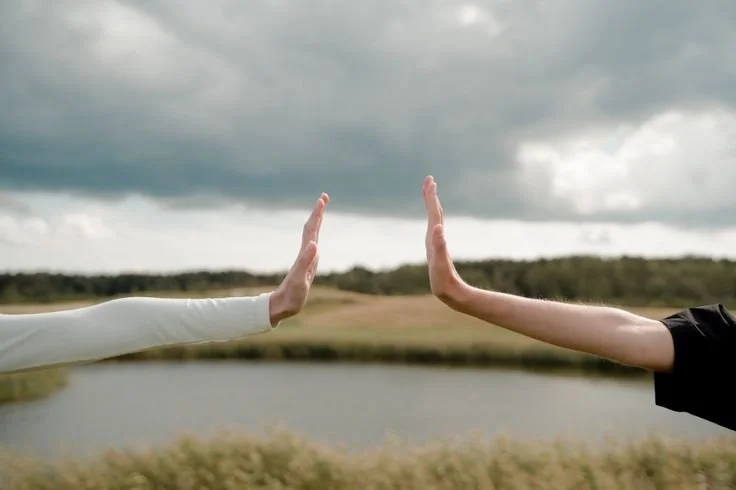The Power of Small Touch
Physical touch with a partner is one of the simplest ways to remind your nervous system: “You’re safe. You’re not alone.” These are not grand romantic gestures. They are just small, steady moments of reaching for one another.
To be clear, I’m not talking about big romantic movie moments here. This isn’t The Notebook or When Harry Met Sally. I mean the small, everyday ways we reach toward each other in passing.
-
• Holding a hand during a difficult conversation
• A quick cuddle before falling asleep
• Resting a palm on a shoulder while making dinner
• A gentle back rub when stress shows up
These small touches matter.
Research shows that couples who practice consistent affectionate touch tend to feel more connected, communicate more softly, and recover from conflict more easily.
In fact, Dr. James Coan at the University of Virginia studied this using Functional magnetic resonance imaging (fMRI). fMRI is a technique that measures brain activity by detecting change in blood flow and oxygen. Dr. Coan found that when a person held their partner’s hand, the brain’s threat-response system significantly decreased. The nervous system interprets that touch as “I’m not alone. I have support.” The effect was strongest in secure, affectionate relationships.
-
Your brain reads touch as we’re on the same team.
You have an ally in whatever you’re facing.
And if touch isn’t how you feel close? That’s completely okay.
Connection comes in many forms such as presence, words, shared humor, and acts of care.
The goal isn’t “more touch.”The goal is simply to find your way back to warmth.
-
Coan, Schaefer & Davidson (2006). Lending a Hand: Social Regulation of the Neural Response to Threat.
Written by: Vandi Nall, LPC
If your partner is struggling to communicate with you? Or no matter what, there is always conflict that can’t be resolved
.
You need someone who can help navigate it.
My work is rooted in creating a warm, open space where clients feel safe to explore anxiety, relational struggles, trauma, grief, and life transitions. I specialize in supporting teens, adults, and couples, especially those who are balancing external expectations and internal unrest.
My therapeutic approach is client-centered, drawing on both cognitive and behavioral techniques to help you understand how thoughts and actions shape emotion. I aim to help you build practical, real-life skills to cope better, now and in the future.
Outside the therapy room, I spend time with my family and pets, enjoy traveling and camping, and I have a background as a trained chef, as I bring that creativity, curiosity, and care into every session.



